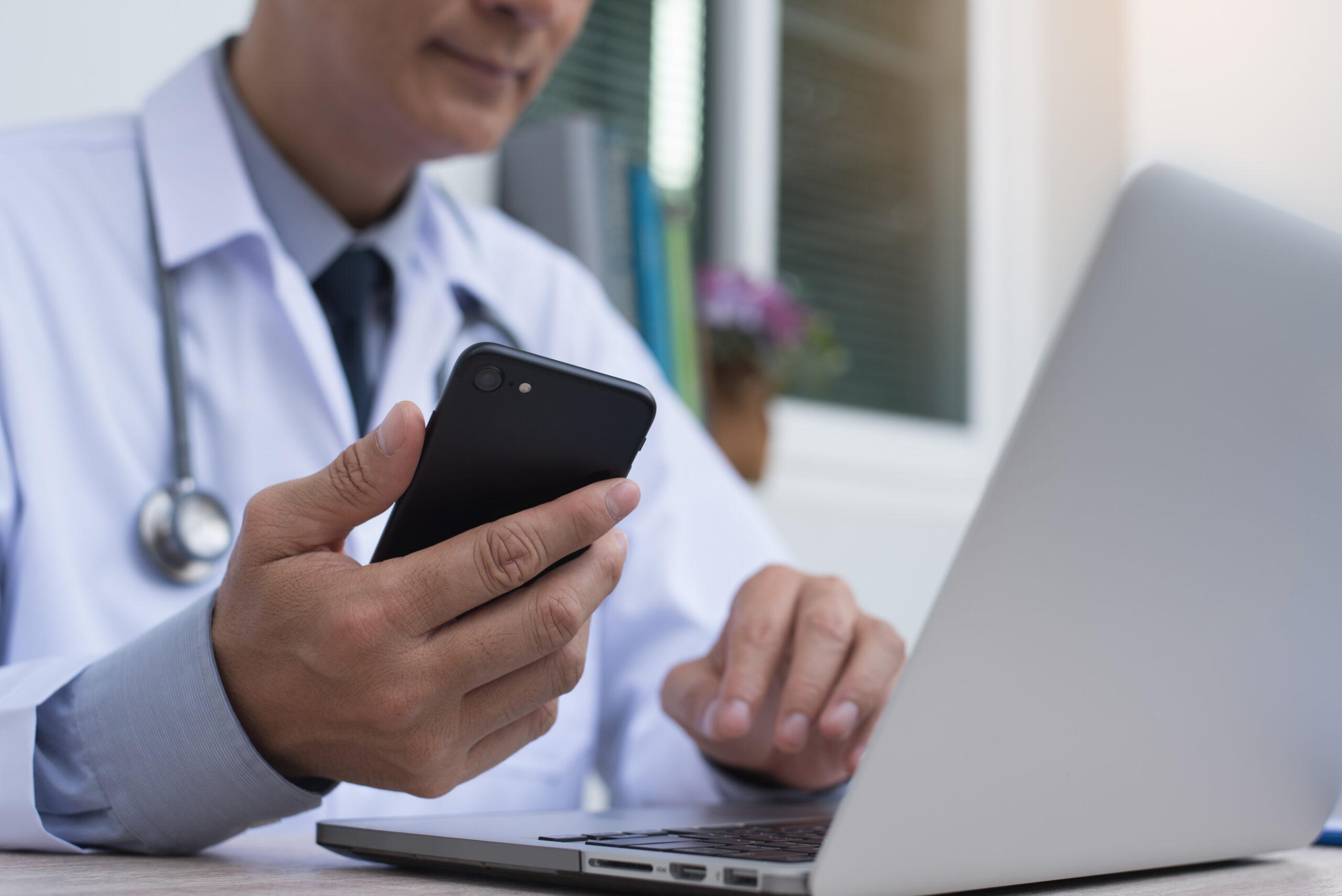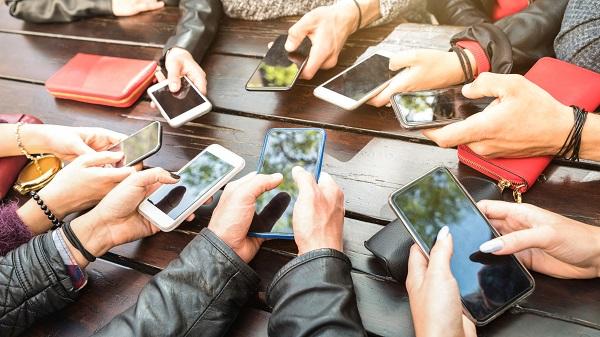Business News Daily provides resources, advice and product reviews to drive business growth. Our mission is to equip business owners with the knowledge and confidence to make informed decisions. As part of that, we recommend products and services for their success.
We collaborate with business-to-business vendors, connecting them with potential buyers. In some cases, we earn commissions when sales are made through our referrals. These financial relationships support our content but do not dictate our recommendations. Our editorial team independently evaluates products based on thousands of hours of research. We are committed to providing trustworthy advice for businesses. Learn more about our full process and see who our partners are here.
How Much Time Do Americans Spend Online and Texting?
Americans spend an inordinate amount of time with popular digital communication options. Here's what to do about it.

Table of Contents
Staying updated on emails, social media and online communication methods is a more extensive time requirement than people may realize. As of 2021, the average person spends 172 minutes per day checking work emails and 149 minutes checking personal emails — this is the first year people are spending more time checking work than personal emails. The pandemic-era shift to remote work, which means work email is readily accessible from home, may explain this.
Furthermore, the average American spends five to six hours daily on their phone outside work requirements. Most Americans spend this phone time texting, using social media and browsing the internet.
How people spend their time online
Between sending emails at work and using social media at home, all this screen time indicates smartphone addiction and may be taking a toll on users’ mental health. Many people feel its adverse effects strongly enough to do something about the situation. Among U.S. adults whom the Pew Research Center surveyed in April 2021, 33 percent have attempted to spend less time on their phones. Similarly, 40 percent said they felt fatigued or worn out from excessive screen time on video calls.
In another recent Pew Research Center report, 31 percent of American adults said they’re online “almost constantly.” This finding has increased by 10 percent since 2015. Survey respondents spend their time visiting social networks, emailing, watching online videos, playing online games, and reading or writing blogs.
The most frequently used online platforms
A study from Uswitch found that the average U.K. adult spends 16 hours per week on Facebook and nine hours on YouTube. U.S. and U.K. work and social cultures overlap enough to safely assume similar numbers apply for American adults.
Users check their social media platforms with varying frequencies. According to Asurion research, most Americans look at their phones up to 352 times daily to check email, texts, Facebook, Instagram, and other sites and apps — up from 96 times a day in 2019.
According to Statista, the most popular online platforms are YouTube and TikTok. The average U.S. adult spends just over 45 minutes per day on each of these platforms. Another Pew report found that 54 percent of people with YouTube accounts use the site daily, and 36 percent of these users access the platform multiple times daily.
Even though many respondents reported wanting to disconnect and decrease their time online, they may be swapping one site for another. For professional social media sites, 16.2 percent of LinkedIn users log in at least once per day.
Why users should reduce their screen time
According to the National Center for Biotechnology Information (NCBI), prolonged and consistent use of social media can lead to depression, stress and anxiety among users of all ages. Health researchers have also found that many users experience social media addiction.
This effect is driven by a constant urge to check and interact with the content on these platforms. Spending less time on social media can help you focus on the real world and curate tangible, productive experiences beyond your screen.
More than 60 percent of Americans spend five or fewer hours outdoors in nature every week, according to research by the Nature of Americans initiative. This is less than one-fifth the amount of time the average American spends on their phone each week. If you reduce your time on your phone daily, you can allocate a few more hours to outdoor activity. Research shows many positive health effects of outdoor activity, such as lower blood pressure and stress.
According to the Mayo Clinic, reducing screen time also allows you to make social connections. Additionally, according to a study that the Mayo Clinic cited, reduced screen time can lead to an improved understanding of body language and other nonverbal cues. This is valuable in both your personal life and at work, where properly reading the room can lead to better teamwork.
Tips to reduce time online
Picking up a phone takes a couple of seconds, yet it can start an endless experience of entertaining, personalized content. Spending less time using digital devices can take conscious effort, but setting screen time limits can yield many benefits.
Here are a few tips to reduce your screen time:
- Set limits. Many mobile devices and social media apps can record the amount of time you spend on your device. For example, you might decide you only want to spend three hours online daily. From there, track your time to ensure you don’t exceed the limit.
- Plan activities. Accessing the internet takes seconds, so it can easily become a habit. However, making specific plans to see friends or go outside can help you deliberately break away from the screen.
- Remove distractions. Place your phone in another room or close your laptop while working on something else. This way, you’re less tempted to pick up your phone each time the screen lights up, and less inclined to conduct a simple internet search that turns into an extended browsing session.
- Create a habit. Reducing your screen time might mean reminding yourself that other sources of entertainment exist. For example, instead of grabbing your phone first thing in the morning, leave a pen and paper beside your bed and spend a few minutes journaling when you wake up. This way, you can train your brain to enjoy other sources of happiness and lessen the urge to log on to social media immediately.
Using screens less often
It’s hard to entirely avoid screens, but it’s relatively easy to take steps toward minimizing your screen usage and creating a healthier work-life balance.
The onus for this change should also fall at least partially on managers, leaders and business owners. Not sending after-hours emails is a great way to help employees detach from screens outside the office. This can lead to happier employees that show up to work with high morale — and when employees are happier, the possibilities are endless.
Max Freedman and David Mielach contributed to the writing and reporting in this article.















